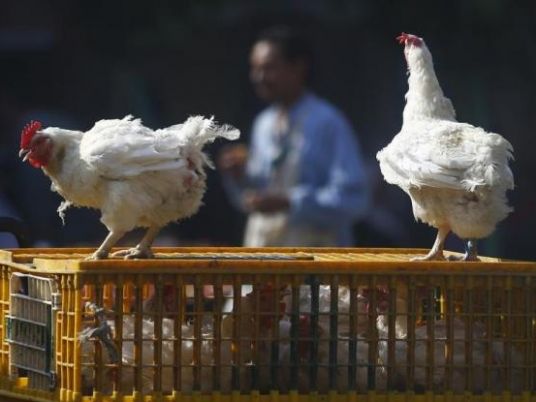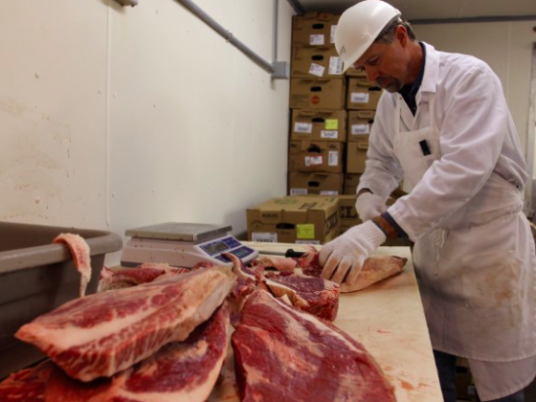For the last four days, many Egyptians have refrained from purchasing meat in order to register their discontent with skyrocketing per-kilo meat prices. Local butchers have been the first to feel the effects of the popular boycott.
“Sales have fallen by about 40 percent,” complained Hamada Metwally, a butcher in Cairo’s Abbasiya district.
“Some butchers have no customers at all,” said Mohamed Ghoniem, a butcher in the district of Saeda Zeineb. “The market is highly unstable right now.”
There have been several calls for the boycott of beef, including two different groups on social-networking website Facebook, in response to dramatic increases in meat prices since January.
Butchers, veterinarians and livestock experts offer various reasons for the price hikes, including a scarcity of livestock in Egypt and bureaucratic obstacles to importing meat from abroad. Others blame the runaway prices on the spread of foot-and-mouth disease, which struck Egyptian livestock after the import of sick calves from Africa in 2006.
“Foot-and-mouth disease resulted in the destruction of approximately half of Egypt’s livestock at the time, until the vaccine was produced one year later,” Dr. Mahmoud Abdel Salam, general manager of planning at the Agriculture Ministry, told Al-Masry Al-Youm.
Another reason is the frequent slaughter by breeders of young calves weighing less than 350 kilograms. “Farmers are poor and can’t afford to raise calves to old age, so now they tend to sell them early,” said Abdel Ghoniem.
According to Abdel Salam, it costs breeders roughly LE100 per month to feed a single young calf. “This is unaffordable for most farmers,” he said.
There are also possible economic reasons. Egypt has traditionally imported its meat from Brazil, Argentina and India. But after Argentina halted meat exports to Egypt, Brazil became a sole supplier and was thus able to raise its prices by some 15 percent, said Abdel Salam.
Another factor to affect meat imports has been the restrictions set by the Agriculture Ministry that have served to impede the importation process. “My business has been at risk for a month now because they are stopping the import of meat,” said meat trader Mohamed Alkatan.
Many consumers blame recent imports of bad meat from India for the government’s tight restrictions on imports. Abdel Salam, however, asserts that Indian meat is perfectly fine for human consumption, “even though it looks disgusting, with white spots on the surface.”
Agriculture Minister Amin Abaza has declared that meat imports from India and Latin America were set to continue so long as exporters in those countries were able to meet international quality standards.
Meanwhile, demand for beef remains higher than ever, especially since many people moved away from poultry and pork in the wake of recent scares over “bird flu” and “swine flu.”
As to the efficacy of the boycott, however, opinions remain divided. Some believe that, even if the boycott succeeds in bringing down retail prices, they will only rise again–on a different pretext–in the future.
Many of those asked by Al-Masry Al-Youm said they planned to refrain from purchasing meat–at least for a while. “I can make pasta with chicken instead of with meat,” said 53-year-old housewife Amal Abdel Hadi.
Others, however, put little stock in the boycott strategy.
“Boycotts of American products during the Iraq invasion and boycotts of Danish products during the Danish cartoon crisis didn’t solve anything–so why would this?” asked 43-year-old journalist Tarek Hassan.
Nevertheless, some butchers have already decreased their per-kilo meat prices by around LE3 as a result of the boycott. “We have no other choice but to lower prices,” said Metwally.
Both consumers and traders, however, continue to suffer. “The government should support farmers by subsidizing animal fodder or facilitating bank loans to help them continue breeding livestock,” Abdel Salam said.
At last count, per-kilo meat prices had jumped to LE85 for veal and LE55 for beef, representing a 15-percent increase since the beginning of the year.
Egypt




